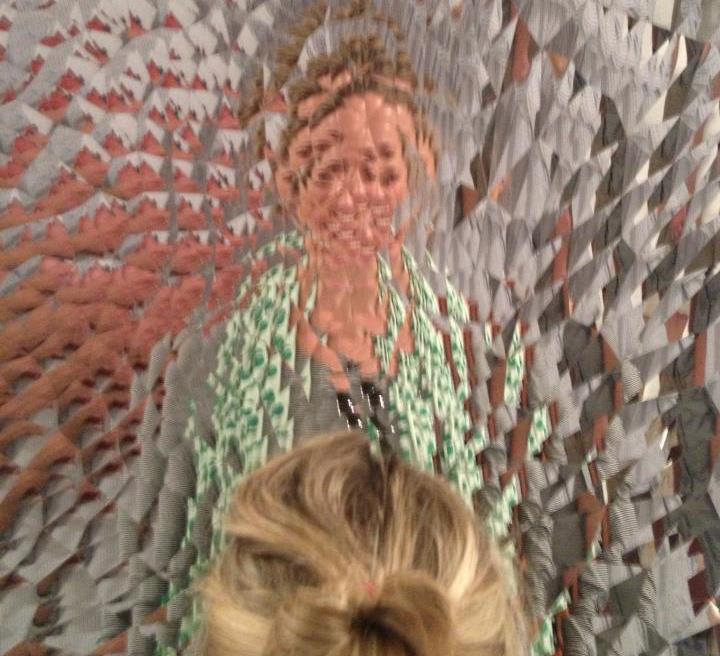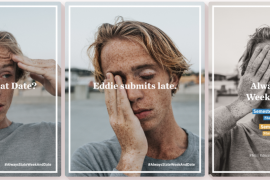In this extended piece for Teaching@Sydney, Jessica Frawley makes the case for scholarly approaches to teaching and learning.
This month The Guardian’s Academics Anonymous (higher ed’s go-to place for collective despair and agony) published the lament of an anonymous academic forced into teaching training that was “all dry ‘eduspeak”. This is a complaint that often comes up in reference to forms of academic development. We have always had great teaching and great teachers*. Equally, students have always learnt – many having previously succeeded in spite of the teaching, not because of it. Practice often precedes theory: boomerangs were aerodynamic before an attendant mathematical model explained how, flying buttresses held up medieval cathedral walls without a theory of structural mechanics, and humans have managed to acquire and share knowledge and skills long before the arrival of learning theory. On one hand teaching and learning are applied things, things that we do, and sometimes best understood in action. And while using eduspeak purely for its own sake should rightly command a whinge to the Guardian (moreso if the actual teaching remains terrible), there is a case for scholarship in this area and specific terminology that lets people engage with theory and discuss things that are might be hard to talk about otherwise.
Evidence and its misuse
In the university sector there has been a rise in research into higher education and approaches that attempt to inform how we teach (what we do) with theory and research. Under this remit we see terms such as ‘scholarly teaching’, ‘scholarly approaches to teaching’ and ‘the scholarship of teaching and learning’ – sometimes referred to as ‘SoTL’ (rhymes with axolotl). These approaches make a case for evidence-based teaching, whereby decisions as to what happens in the classroom are based on something – be that research from the literature, theory, data, or reflective insight. In this marriage, good pedagogy underwrites daily decisions, and observations from the classroom feed into new theory and findings. So far so good.
But, as with any field or discipline, research and scholarship offer no guarantee of any real ‘out there in the world’ change. In education, there are numerous examples where particular methods (often ones that are in vogue) are misapplied.

https://flic.kr/p/u8P4H
Flipped classrooms, gamification, the plethora of acronyms that make up the problem-/team-/work-integrated-learning models – all can be cited as examples of good educational methods with good educational theory that can be disastrous when rolled out with ‘one-size-fits-all’ uniformity. In placing theory before practice, method before student, there is a risk of ‘methodolatry’: the uncritical worship and pursuit of a method even when all the evidence suggests otherwise (see Janesick, 1994). While it’s entirely human to have preferences of the kind of work we do (be it qualitative or quantitative, lab based or in the wild), method and theory exist to service our understanding of the world – not to impose a straightjacket on it.
In placing theory before practice, method before student, there is a risk of ‘methodolatry’ – that is, the uncritical worship and pursuit of a method even when all evidence suggests otherwise […] for teaching and learning, method and theory exist to service our understanding of the world – not to impose a straightjacket on it.
The tendency to look towards the next big thing, while frustrating, is understandable. Larger and more diverse student cohorts, increasing market competition, and the usual pressures of continuous improvement, provide the conditions that make ‘quick fixes’ especially appealing. But, just like poor science reporting in which ‘Caffeine causes cancer’ garners more clicks and public interest than the more heavily caveated original study, so too can educational research be misapplied. There has always been a healthy market for silver bullets, and this market is unlikely to diminish. While as academics we are expected to have the research training necessary to navigate this – we may not always be equiped for the specifics of education. Like all disciplines and fields, education has its own methods, vocab and terms of engagement. For those outside the social sciences, the endless theories, models and frameworks can feel purposefully designed to make the obvious obscure – linguistically or otherwise. Motivation theory, self-efficacy, engagement, performance, critical incidents – these abstractions often fail to capture the joy of being in a really good class, either as a student or teacher. It is any wonder that for academics who have intuitively succeeded to engage and inspire students for years that this ‘eduspeak’ and its purported body of knowledge may feel not only redundant but possibly harmful.
The legitimacy of intuition…
What is more, there is legitimate knowledge that comes from experience and practice. The concept of expert intuition goes some way to explaining how experts make good intuitive judgments. But, as Nobel prize-winner Daniel Kahneman summarises in Thinking Fast and Slow, certain conditions are needed for this to develop. The first is that the environment must be sufficiently regular so as to be predictable. The second is that someone must have sufficient opportunity to access fast and high quality feedback through which to learn the particular regularities or rules of those conditions. Examples that illustrate this often refer to the decision making of ER medical staff or firefighters. Human biology and common fires change fairly slowly, which means for these experts exposure to a high quantity of cases or instances leads to the ability, over time, to allow those workers to make intuitive judgements that are informed by their expertise. While this might work for areas with some predictable pattern, expert intuition cannot develop or work in chaotic conditions that are subject to rapid change (e.g. the stockmarket). In chaos and change, reliance solely on an individual’s intuition (however experienced) can lead to terrible decisions.
The question for us is where does teaching sit – is it more like human biology or more like the stockmarket? This is a hard one to answer, mainly because measuring the effectiveness of teaching is hard to do. While some reports (albeit of the school system) seem to suggest that the experience of a teacher generally leads to improved student performance in standardised tests, we also know that just doing well on a test is only one indication of learning (and not always a good one – especially if your student forgets all they have crammed and rote learnt by the morning after). Also teaching environments differ. Some might be more stable or uniform than others. Whether we engage with formal theory or not, being dependent on intuition as a strategy for improved teaching is a bad idea. However well-intentioned we might be, we remain human and prone to bias.
… and its limitations

Under the rapid change that higher education both finds itself in and subjects itself to, even the most experienced teachers need other ways to inform their judgement. This is especially the case when teaching either has to scale-up or deal with large slow-moving objects such as semesters, years or even degree programs. Also, for those educators who eventually find themselves in leadership roles, setting the strategy for a school, faculty, or entire institution can cause real problems if the decisions that impact many are based solely on the discreet experience of a few. Universities are sufficiently varied in their structure that reliance on individual hunches or popular front-of-class personalities can be problematic.
Though in the past, academics might have been better able to know their students through small seminar discussions where research, mentorship and teaching coalesced, larger student intakes and increasing diversity in student backgrounds (e.g. cultural, socioeconomic etc) mean that we need other ways of thinking how our education might work for someone who isn’t us. It is easy and tempting to think that what worked for us will work for them. This is not only an issue because the students have changed but also because, as academics, we were never particularly representative in the first place. Academics are odd in this respect: ‘good students’ who took advanced degrees and, even after this, not only wanted to pursue research and teaching careers but managed to do so. It should be obvious that the way we view our own disciplines, our beloved research interests and academic pursuits might be different to that of our students. From this vantage point we may no longer be able to intuitively divine which directions our students want to go in.
This is why the ability to balance different kinds of evidence is so important. Done sensitively we can probe, interrogate and explore the wonders of teaching with finer tools. Though the vocab may be strange (at first), if used well it need not be excluding and may even allow us to communicate with greater specificity. Whether we choose to go down the path of grants, awards and promotions is up to us, but at the bare minimum, knowing those few key words can make our Google scholar searches a little less futile and the things that work a little more sensible.
In the end…
In the end, scholarly approaches and SoTL are not about abandoning your existing research to devote yourself to the life and works of John Biggs or beating your students into slavish adherence to the latest teaching theory, strategy or fad. Nor does adopting an evidence-based approach mean ignoring our own experiences or feelings about why something is or isn’t working. The feeling you get when a well prepared lecture fails can remain quite raw for days, or weeks, after the event. Disregarding this rather large piece of evidence is both unhelpful and impossible. Rather, things like SoTL are about embracing curiosity and inquiry and looking outside of ourselves– to check our biases and see what others have discovered, but to see what we too can discover if given the chance to look through a different lens.
Where to begin
- Face-to-face courses: Most universities offer training and qualifications that introduce the key ideas in a timely way. At Sydney these range from the one and a half day Principles and Practice Program through to the Graduate Certificate in Educational Studies (Higher Education) – and a whole range of workshops and talks in between. Dry eduspeak may present itself but is always applied to practice and stuff you want to do with your students.
- The Higher Ed classics: John Biggs, Keith Trigwell, Michael Prosser, Paul Ramsden and Diana Laurillard are just some of the big names that offer applied insight into the area. Though it is good to be aware of this body of literature, some of this work can be hard to absorb cover-to-cover without having something specific to link/hinge/attach that reading to.
- Sticking with the discipline: Instead of work that is solely devoted to higher education most disciplines have education tracks at conferences and sometimes their own specialist conferences and journals devoted to education in whatever subject you’re teaching (e.g. Journal of Engineering Education). This can offer a less abstract introduction to the literature that can show you how big ideas in the area have been applied more locally.
- News, blogs and other media: Scholarly teaching needn’t be solely rooted solely in the scholarly literature. Teaching blogs (such as this one), videos and periodicals such as the Times Higher Education Supplement, Inside Higher Ed and The Chronicle of Higher Education are all accessible ways of tuning into the discussions people are having about teaching.





